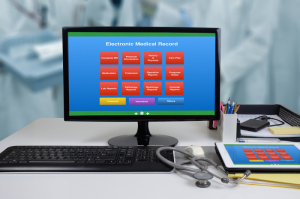by
Thomas Dworetzky, Contributing Reporter | July 27, 2018
Although electronic health records are linked to fewer hospital deaths, getting over the transition hump can actually bump up the number of fatalities.
When scientists compared death rates and the extent of record digitization in patients over 65 years old, in 3,249 hospitals in the U.S. over a five-year span, they found that “for every electronic health function – medication lists, computerized prescribing, clinical decision support – that was already fully implemented, hospitals had 0.11 additional deaths per 100 patient admissions, or a 0.11 percentage-point higher mortality rate,”
according to Reuters.
After the hump, however, each function implemented at the beginning of the study period was linked to a 0.09 percentage-point drop in the yearly death rate. And for each new function implemented there was a drop of 0.21 percentage-points in death rate.
“Our overall findings were driven by what was happening in small and non-teaching hospitals,” not larger institutions, senior study author Julia Adler-Milstein of the University of California, San Francisco, told the wire service.
“So for patients considering care at these types of hospitals, it might be good to know how digital they are and then, if there is a need to receive hospital care and the patient has a say in where that occurs, pick a hospital that is more digital and has been digital for longer,” he added.
As the analysis wasn't a controlled study, the researchers can only speculate that perhaps the EHR impact on death rates in bigger and academic institutions was less because they would have typically already been engaged in more aggressive quality improvement and mortality cutting efforts even before digitization.
“To avoid these potential negative effects, hospitals should ensure that adequate supports and resources are in place prior to and throughout the time of adoption or modification of an EHR system, and that contingency plans are in place for when the EHR is not working,” Ann Kutney-Lee, a researcher at the University of Pennsylvania School of Nursing in Philadelphia who wasn’t involved in the study, told Reuters.
Most hospitals have made the transition to EHR at this point, but when it first happened it was a dramatic jolt to the way medicine had been done.
“It isn’t surprising that there was an initial learning curve for hospitals,” A. Jay Holmgren, a researcher at Harvard Business School in Boston who wasn’t involved in the study, told the news service.
